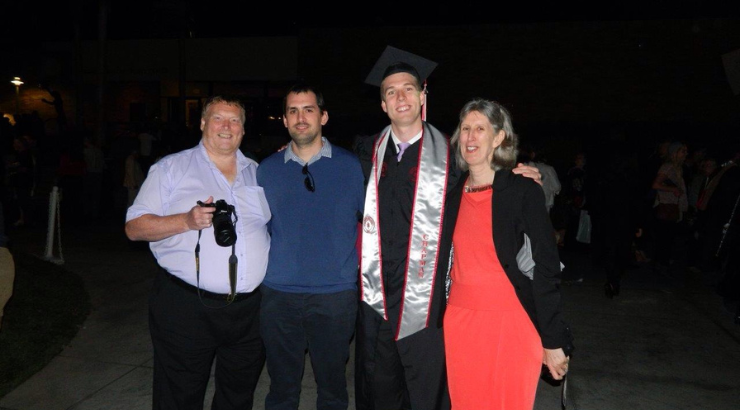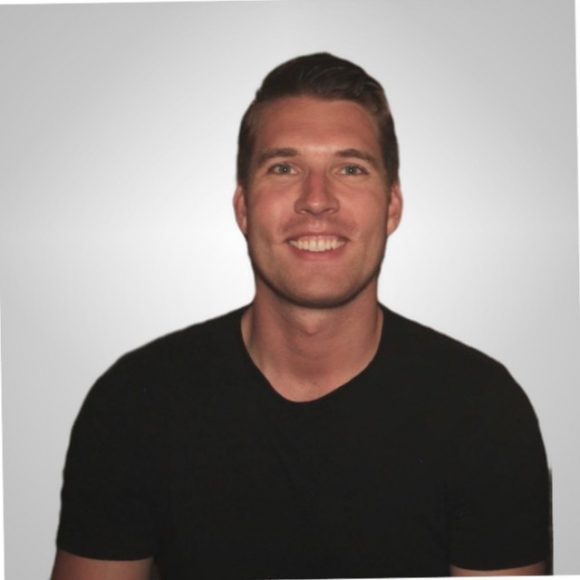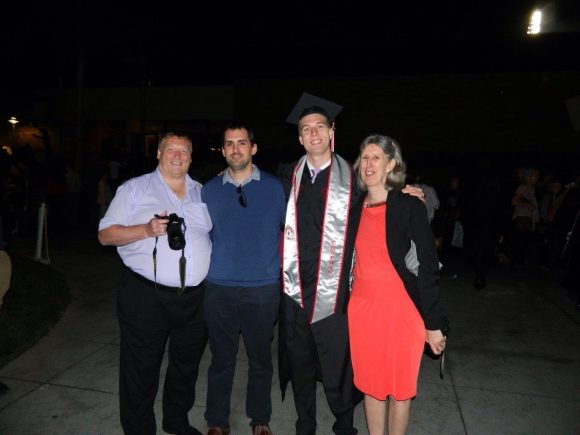
Alumni Spotlight: Adam Bedford ’14 Co-Founder & Co-CEO, Sans
November 16, 2023
 Chapman University has produced a multitude of successful entrepreneurs, and one notable name among them is Adam Bedford. Adam is a 2014 graduate with a B.S. in Business Administration, a B.S. in Accounting, and a minor in Economics. He is now the Co-Founder and Co-CEO of Sans, a consumer hardware and direct-to-consumer brand. Adam shares insights into his entrepreneurial journey, the challenges faced, and the pivotal role his Chapman experience played.
Chapman University has produced a multitude of successful entrepreneurs, and one notable name among them is Adam Bedford. Adam is a 2014 graduate with a B.S. in Business Administration, a B.S. in Accounting, and a minor in Economics. He is now the Co-Founder and Co-CEO of Sans, a consumer hardware and direct-to-consumer brand. Adam shares insights into his entrepreneurial journey, the challenges faced, and the pivotal role his Chapman experience played.
The Sans Story
Adam knew from an early age that he wanted to be a founder and I used to romanticize Silicon Valley and the founder/VC ecosystem, thinking that was the only way to build an exciting business. Over time, he has learned that what really matters is finding a large problem to solve that you’re passionate about and doing so in a way that customers love. “This can happen anywhere and at any stage in one’s life,” he says. “A venture can be even more enduring if you’re solving a problem you’ve experienced yourself because you have market research and customer development baked in!”
Adam’s journey into entrepreneurship began with a realization of his knack for turning ideas into scalable ventures. Before Sans, he founded an EdTech (education technology) startup that was acquired. At this startup, Adam did everything from writing code to sales. He says, “This gave me a taste of what it’s like to build something that people love and find value in and I find a lot of energy in that.”
Enter Sans. Sans is a consumer hardware and direct-to-consumer brand that Adam co-founded with John Fanelly. Adam says “We make thoughtful products that make your home healthier. We launched with an air purifier in 2020 and recently added a water purifier, with a handful of additional products launching next year.” His entry into consumer hardware and e-commerce with Sans presented a steep learning curve as Adam didn’t know anything about hardware or e-commerce, the two defining aspects of the business.
Key Decisons & Success
Adam says that there are “certain challenges that come with building a business that sells physical products rather than software, namely cash flow.” He and his co-founder have found a way to manage cash effectively, which has allowed them to avoid taking venture capital, something that can be a pitfall for consumer goods businesses.
Reflecting on the early stages, Adam highlights the importance of assembling a top-notch team. By doing so, they transformed from a bootstrapped venture into a thriving business. “This feels obvious in hindsight,” he says, “but we made a commitment early on to only surround ourselves with the absolute best folks for each skill set we needed help with. We kept the internal team lean and relied heavily on freelancers, fractional team members, and agencies.”
Something that Adam thanks himself for are early decisions he made for his career. “I taught myself to code at an early age, which certainly contributed to my love for building things,” he says. “I’ve also always been quite risk-tolerant and willing to put the work in, even if I don’t know what the outcome will be. From an early career perspective, I was lucky to be given a great deal more autonomy and trust than a recent grad typically gets and I was able to learn what it takes to actually grow and operate a business.”
Chapman’s Impact on Adam
Adam is not originally from the United States, and says that “Moving to the US was definitely a risk! I hadn’t actually visited Chapman before moving out here so I took a bit of a chance but it couldn’t have paid off any better.” Adam grew up in Spain and went to a small high school where his graduating class was only 11 people, so moving to the US to attend a university of any size was a big deal for him. But, he particularly appreciated the scale of Chapman and its family-oriented nature.
Adam was involved with the “eVillage” (part of the Leatherby Center) when it launched and one of his roommates that year was leading the entrepreneurship club, so he had good visibility into what was going on with the entrepreneurship initiatives. Entrepreneurship was also Adam’s emphasis, and he continues to have an appreciation for those classes and professors.
Some standout experiences for Adam included relationships built with his professors Ken Murphy and Scott Anderson. For Adam, Ken Murphy stands out for being so generous with his time and for letting him take graduate-level classes during his senior year. He also enjoyed the accounting classes he had with Scott Anderson, whose introduction to Ernst & Young led to his summer internship and first job.
Additionally, Adam became more and more involved on campus throughout his four years, culminating in founding the Chapman Consulting Club with a friend of his. “We were both applying for jobs in management consulting…and wanted to create opportunities to practice case study interviews with other interested students. We invited speakers from consulting firms onto campus to hold sessions and workshops and generated quite a bit of interest in creating recruiting paths into the top firms.”
Advice for Aspiring Entrepreneurs
Drawing from his journey, Adam advises aspiring entrepreneurs to make educated bets, emphasizing the importance of deep sector knowledge and building a network. He encourages going all-in when passion is unwavering, and learning every function in the business. In terms of when to dive in, Adam says this: “On timing, I’d say it’s time to go all in when you literally can’t imagine doing anything else. Only then do you likely have the drive necessary to overcome the obstacles.”
__
Adam Bedford’s entrepreneurial journey is a testament to the power of passion, strategic decision-making, and a commitment to continuous learning. His story serves as inspiration for current students and recent graduates contemplating the entrepreneurial path, showing that with the right mindset and dedication, success can be found in any venture.